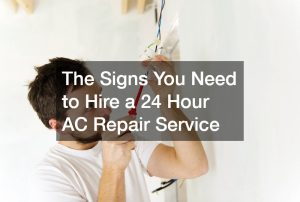As a homeowner, understanding how to properly maintain your HVAC system is crucial for keeping your home comfortable and energy-efficient. By following these HVAC tips for homeowners, you can ensure that your heating and cooling systems run smoothly and efficiently all year round.
1. Regular Maintenance
Regular maintenance for HVAC systems involves scheduling routine inspections and tune-ups by professional HVAC contractors. These maintenance visits can help identify any potential issues before they become major problems, saving you time and money on costly HVAC repair. Homeowners should aim to schedule HVAC preventative maintenance at least once a year to ensure their systems are running at peak performance.
By investing in regular HVAC maintenance, homeowners can improve the longevity of their heating and air conditioning systems. HVAC technicians can check for any worn-out components, clean the system thoroughly, and make any necessary adjustments to ensure optimal performance. This proactive approach to HVAC maintenance can help prevent unexpected breakdowns and extend the lifespan of your HVAC unit.

2. Changing Filters
One of the simplest yet most effective HVAC tips for homeowners is to regularly change the filters in your HVAC system. Dirty filters can restrict airflow, causing your system to work harder and consume more energy. By changing your filters every 1-3 months, you can improve your HVAC system’s efficiency and reduce the risk of heater or AC repair.
Signs that indicate a filter needs to be changed include reduced airflow, increased dust and debris in your home, and higher energy bills. By keeping a supply of filters on hand and setting a reminder to change them regularly, you can ensure that your HVAC system runs smoothly and efficiently. Additionally, using high-quality filters can help improve indoor air quality and reduce the risk of allergens circulating in your home.
An air duct cleaning company can also inspect your ductwork and clean any build-up of dust and debris that may be affecting your HVAC system’s performance. Professional duct cleaning can enhance indoor air quality, reduce energy consumption, and improve the overall efficiency of your heating and cooling systems.
3. Programmable Thermostats
Investing in a programmable thermostat is a smart way for homeowners to save on energy costs and improve HVAC efficiency. Programmable thermostats allow you to set specific temperature settings based on your schedule, ensuring that your HVAC system only runs when needed. By following these HVAC tips for homeowners, you can help lower your energy bills and reduce wear and tear on your heating and air conditioning equipment.
HVAC companies often offer installation services for programmable thermostats, ensuring a seamless integration with your existing HVAC system. By consulting with a heating and air conditioning technician, homeowners can receive expert recommendations on the best thermostat options for their home and lifestyle.
4. Proper Insulation
Insulation plays a key role in maintaining the efficiency of your HVAC system by reducing heat transfer and air leakage. Proper insulation helps keep your home comfortable year-round and prevents your heating and cooling systems from working overtime. Homeowners should ensure that their homes are adequately insulated to maximize energy savings and HVAC performance.
Local HVAC companies can conduct energy assessments to identify areas in your home that require additional insulation or upgrades. By following these HVAC tips for homeowners and addressing any insulation gaps or deficiencies, you can create a more energy-efficient and comfortable living environment while reducing the workload on your HVAC system.
5. Sealing Air Leaks
Sealing air leaks in your home is essential for maintaining HVAC efficiency and indoor comfort. Air leaks can allow cold or warm air to escape, forcing your heating and cooling systems to work harder to maintain desired temperatures. Common areas for air leaks include windows, doors, electrical outlets, and ductwork connections.
By identifying and sealing air leaks with caulking, weatherstripping, or insulation, homeowners can prevent energy waste and reduce the strain on their HVAC systems. Sealing these leaks not only improves comfort levels in your home but also helps lower your energy bills and increase the lifespan of your heating and air conditioning equipment. Regularly inspecting your home for air leaks and addressing them promptly can help maximize HVAC efficiency and performance.
An HVAC company can conduct a comprehensive inspection of your home to locate and seal air leaks effectively. Professional HVAC technicians have the expertise and tools to identify problem areas and implement solutions that improve energy efficiency and indoor air quality. By following these HVAC tips for homeowners and investing in air sealing services, homeowners can optimize their HVAC systems and create a more comfortable living environment.

6. Setting Vents Properly
Optimizing airflow in your home by setting vents correctly is crucial for maintaining HVAC efficiency and comfort. By adjusting the airflow in each room, homeowners can ensure that heated or cooled air is distributed evenly throughout the house, preventing hot or cold spots. Properly set vents can help balance indoor temperatures and reduce energy consumption.
A heating and air conditioning technician can provide guidance on how to set vents properly to maximize HVAC efficiency and performance. By following these HVAC tips for homeowners and consulting with an HVAC professional, homeowners can learn the best practices for adjusting vents based on room layout, seasonal temperature changes, and personal comfort preferences. Properly setting vents can help maintain a balanced climate in your home and prevent unnecessary strain on your HVAC system.
7. Balancing Airflow
Airflow balancing is the process of adjusting airflow levels in your HVAC system to ensure consistent heating and cooling throughout your home. Balanced airflow helps maintain even temperatures in different rooms, prevents HVAC equipment from overworking, and improves overall comfort. By balancing airflow, homeowners can enhance HVAC efficiency and reduce energy consumption.
An HVAC company can perform a comprehensive airflow analysis to evaluate the distribution of air throughout your home and recommend solutions for balancing airflow. Professional HVAC technicians have the training and tools to optimize airflow in your heating and cooling systems, ensuring that your home remains comfortable and energy-efficient. By investing in airflow balancing services, homeowners can enjoy consistent temperatures and improved air quality in every room.
8. Cleaning Ductwork
Regular duct cleaning is essential for maintaining HVAC efficiency, indoor air quality, and system longevity. Over time, dust, dirt, and debris can accumulate in your ductwork, restricting airflow and causing your HVAC system to work harder. By scheduling routine duct cleaning services, homeowners can improve air circulation, reduce allergens, and prolong the lifespan of their heating and cooling equipment.
An HVAC technician can assess the condition of your ductwork and recommend a duct cleaning schedule based on your home’s needs and usage. By working with a professional HVAC contractor, homeowners can receive expert duct cleaning services that improve airflow, energy efficiency, and overall system performance. Investing in duct cleaning can help extend the life of your HVAC system and improve the air quality in your home.

9. Weatherproofing Windows and Doors
Weatherproofing windows and doors is a cost-effective way to improve HVAC efficiency, reduce energy consumption, and enhance indoor comfort. Proper weatherproofing seals gaps and cracks around windows and doors, preventing air leaks and heat loss. By investing in weatherproofing materials such as caulk, weatherstripping, and insulation, homeowners can create a more energy-efficient and comfortable living space.
Local HVAC companies offer weatherization services that include inspecting windows and doors for air leaks, applying weatherproofing materials, and recommending energy-efficient solutions. By working with an HVAC professional, homeowners can receive customized weatherproofing solutions that enhance the efficiency and performance of their heating and cooling systems. Investing in weatherproofing can help homeowners save on energy bills and create a more sustainable home environment.
10. Utilizing Ceiling Fans
Fans are another key feature in our list of HVAC tips for homeowners. Using ceiling fans in conjunction with your HVAC system can help improve airflow, distribute heat or cool air more effectively, and reduce energy consumption. Ceiling fans create a wind-chill effect that can make your home feel cooler in summer months and help circulate warm air in winter. By adjusting the direction and speed of your ceiling fans, you can optimize comfort levels and enhance HVAC efficiency.
An HVAC technician can provide guidance on using ceiling fans effectively to complement your heating and cooling systems. By consulting with a heating and air conditioning professional, homeowners can learn the best practices for using ceiling fans to maximize efficiency and comfort. By utilizing ceiling fans strategically, homeowners can create a more comfortable living environment while reducing energy consumption.
11. Managing Humidity Levels
Controlling humidity levels in your home is essential for maintaining indoor comfort and preserving the integrity of your HVAC system. High humidity can make your home feel sticky and uncomfortable, while low humidity can lead to dry air and respiratory issues. By regulating humidity levels, homeowners can create a healthy living environment and reduce the risk of HVAC problems.
An HVAC company can recommend solutions for managing humidity levels in your home, such as installing humidity control systems or upgrading to a more advanced HVAC system. By consulting with an HVAC technician, homeowners can receive personalized recommendations for regulating humidity and improving indoor comfort. Managing humidity levels can also help homeowners reduce energy consumption and prevent costly HVAC repairs in the long run.

12. Knowing When to Call a Professional
Asking for help is one of the top HVAC tips for homeowners. It’s important for homeowners to know when to call a professional HVAC technician for repairs or maintenance. Signs that indicate HVAC system issues include strange noises, uneven heating or cooling, frequent cycling on and off, and increased energy bills. By recognizing these warning signs, homeowners can address potential problems before they escalate into major HVAC issues.
If you experience any of these symptoms or suspect that your HVAC system is not operating efficiently, it’s essential to contact a local HVAC company for an air conditioner inspection and repair. HVAC technicians have the expertise and tools to diagnose and resolve a wide range of heating and air conditioning problems, ensuring that your home stays comfortable and energy-efficient. By addressing issues promptly, homeowners can prevent costly HVAC repairs and prolong the lifespan of their systems.
Regular maintenance and tune-ups by a certified HVAC contractor can help prevent unexpected breakdowns and extend the life of your heating and cooling equipment. By scheduling routine HVAC inspections and following preventative maintenance guidelines, homeowners can keep their systems running smoothly and efficiently. Investing in professional HVAC services can provide peace of mind knowing that your home’s comfort is in good hands.
13. Energy-Efficient Upgrades
Energy-efficient upgrades are a smart investment for homeowners looking to improve HVAC efficiency, reduce energy consumption, and lower utility bills. Upgrading to energy-efficient HVAC products such as high-efficiency furnaces, air conditioners, and heat pumps can help homeowners save money on heating and cooling costs. By choosing energy-efficient systems, homeowners can enjoy improved comfort and performance while reducing their environmental impact.
Energy-efficient upgrades can also include installing programmable thermostats, upgrading insulation, sealing air leaks, and optimizing airflow in your home. These upgrades can enhance HVAC efficiency, reduce energy waste, and create a more sustainable living environment. By consulting with an HVAC professional, homeowners can receive recommendations on the best energy-efficient upgrades for their specific needs and budget.
Many local HVAC companies offer energy-efficient products and installation services to help homeowners maximize their HVAC efficiency. By investing in energy-efficient upgrades, homeowners can benefit from lower energy bills, improved system performance, and a more eco-friendly home. Upgrading to energy-efficient HVAC technology is a smart way to enhance comfort, save money, and reduce your carbon footprint. That’s why it’s one of the top HVAC tips for homeowners!
Conclusion
By following these HVAC tips for homeowners, you can ensure that your heating and cooling systems operate efficiently and effectively. Regular maintenance, changing filters, utilizing programmable thermostats, proper insulation, sealing air leaks, setting vents correctly, balancing airflow, cleaning ductwork, weatherproofing windows and doors, using ceiling fans, managing humidity levels, knowing when to call a professional, and investing in energy-efficient upgrades are all essential steps in maintaining a comfortable and energy-efficient home. By prioritizing HVAC maintenance and implementing these tips, homeowners can enjoy reliable HVAC performance, lower energy bills, and improved indoor comfort throughout the year.



